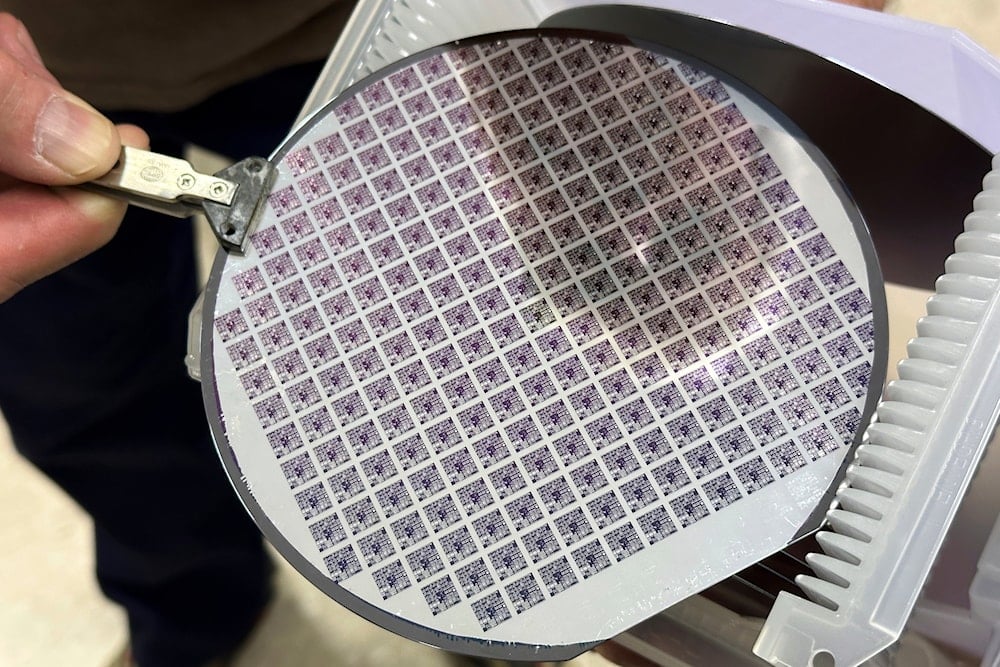Trump urges US chip firms to halt sales to China: FT
The US Commerce Department orders top Electronic Design Automation firms, including Cadence, Synopsys, and Siemens EDA, to halt software sales to Chinese companies.
-

A semiconductor silicon wafer fabricated with multiple microchip microprocessors is at the school of microelectronic engineering at the Rochester Institute of Technology in Henrietta, NY, on Monday, April 14, 2025. (AP)
The Trump administration has ordered US companies that provide semiconductor design software to stop selling their products to Chinese firms, according to a Wednesday report by the Financial Times, citing several people familiar with the decision.
The report further stated that the Commerce Department had instructed Electronic Design Automation companies, including Cadence, Synopsys, and Siemens EDA, to cease providing their technology to Chinese companies.
According to the Financial Times' report, the Bureau of Industry and Security issued the order to these companies.
Semiconductors, which possess electrical conductivity falling between conductors and insulators, serve as fundamental components in modern electronics such as microchips and integrated circuits, forming the essential foundation for a wide range of electronic devices, including computers, smartphones, and medical equipment.
This comes amid heightened tensions between Beijing and Washington, after the US continued to impose restrictions on China, more recently against Huawei-made chips.
China condemns US Huawei chip restrictions
China sharply criticized on May 22 the latest US export controls on Huawei's AI chips, with the Commerce Ministry condemning the measures as violations of international trade rules while threatening countermeasures through its Anti-Foreign Sanctions Law, as tensions between the two nations continue to intensify.
During Thursday's press conference, Ministry spokesperson He Yongqian asserted that the recent US measures not only jeopardize China's technological advancement but also breach widely accepted international norms.
"China holds that the US abuse of export controls to contain and suppress China violates international law and the basic norms of international relations. It gravely infringes upon the legitimate rights and interests of Chinese enterprises and harms China's development interests," Yongqian stated.
These comments came in response to the US Commerce Department's Bureau of Industry and Security issuing new guidance that classifies the global use of Huawei's Ascend 910B, 910C, and 910D chips as violations of American export control regulations.

 2 Min Read
2 Min Read










